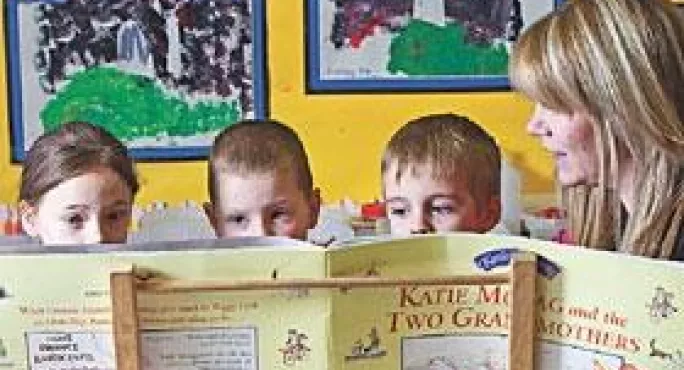Attainment fall in reading and writing

Original paper headline: Dramatic fall in reading and writing attainment as pupils grow up The number of pupils reaching expected reading and writing levels drops sharply as they progress from P3 to S2 - coinciding with teachers becoming less likely to engage with curricular reform. The proportion of pupils enjoying school also falls in the same period, and there is evidence that may prompt teachers to reassess the type of reading they give to pupils. The trends emerge in the latest Scottish Survey of Achievement, which this year focuses on reading and writing. Some 13,000 pupils - in P3, P5, P7 and S2 - from 400 state and independent schools took part between April and June 2009. The decrease in pupils reaching expected levels for writing is particularly stark. Almost all P3s do so, while 70 per cent exceed expectation. But by S2, only a third of pupils are at the expected level or above. In reading, nearly 90 per cent of P2s make at least a “good start” at Level A. By S2, however, fewer than two-thirds of pupils have got that far with Level E. The S2 writing figures were “shocking”, said Labour education spokesman Des McNulty, who called on the Scottish Government to bring forward a proposed “action plan” on literacy. The survey reinforces Education Secretary Michael Russell’s view that there is room for improvement in Scottish education, but also “much to celebrate”. The study detects decreasing confidence in reading, writing, talking and listening from P3 to S2. Enjoyment of reading and learning also falls with the passing years. In P3, nearly 70 per cent of pupils agree “a lot” that they would be happy to receive a book as a present; by S2, that falls to little more than 20 per cent. Around three-quarters of P3s enjoy reading “a lot”, compared with some 30 per cent of S2s. When pupils are polled about what they read, most categories (including story books, factual books and magazines) become either less popular or marginally more popular as children grow older. The striking exception is online reading: while only about a quarter of P3s and P5s read frequently on the web, nearly half of S2s do so. The survey suggests that secondary teachers are less likely to be getting to grips with Curriculum for Excellence and related concepts, such as active and peer learning, than primary colleagues. Some 300 primary teachers and 600 secondary teachers were polled on pupils’ activities during lessons. Nearly three-quarters of P3 teachers said pupils talked with peers about what they were learning most days, compared with only around half of S2 teachers. There is an increasing trend, from P3 to P7, for teachers to report that pupils work with a partner or a group on a shared task most days - peaking at about three-quarters of P7 teachers. This is followed by a sharp drop in secondary schools, with only 40 per cent of S2 teachers making that claim. About three-quarters of 280 primary teachers said they used Curriculum for Excellence experiences and outcomes “most days” or “most weeks”, but that falls to around half of 530 secondary teachers questioned. Teachers often overrate pupils’ reading and writing skills, the survey also finds. The authors’ explanation is that their assessments are based on performance in a limited number of tasks on a single day, whereas teachers use evidence from a longer period. Also, teachers make judgments based on what they teach, while the survey makes broader demands of pupils. This year’s survey is the last to reflect the 5-14 curriculum. Future versions will tie in with Curriculum for Excellence, focusing on literacy and numeracy in alternate years. The 2011 survey will scrutinise numeracy.
Keep reading for just £1 per month
You've reached your limit of free articles this month. Subscribe for £1 per month for three months and get:
- Unlimited access to all Tes magazine content
- Exclusive subscriber-only stories
- Award-winning email newsletters



